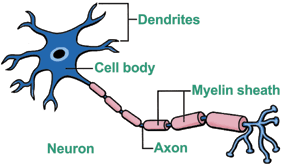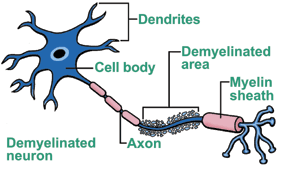
There are all kinds of sufferings. There are suffering of financial hardship, discrimination hardship, phyiscal disabilities, learning disabilities and much more. Almost ALL of us have been and will experience hardship in our lives.
As a person who have had disabilities throughout my life since birth. One of the beauties of having afflictions is that God has taught me through all the uncertainties in my life. The Scriptures clearly reveals that we can expect sufferings in this world. We need to put sufferings in the context of God's plan for our lives, and we will understand what He is doing something beautiful. I have had negative and positive reactions from people around me. Both Christians and non-Christians. I had more problems with Christians than non-Christians about my disabilities.
Christians have trials because we live in a sinful world
We are part of a fallen race Romans 3:10-23
We live in a world of turmoil and natural disasters.
We live in a world of crime, sickness, death Hebrews 9:27
Christians have trials because of the power of satan
We have an adversary: satan. Consider satan´s attack on Job. The roaring lion. 1 Peter 5:8
Christians are on a collision course with the world, Jesus warned us of this conflict John 15:18-20
Many have suffered and died for Christ Hebrews 11:36-40
Why The Christians Trials are Different
read 1 Peter 4:13
We do not suffer alone Hebrews 13:5-6
We become partakers of Christ´s sufferings 1 Peter 4:13
We can even find joy in jeopardy Acts 16:25-32
There is a design in our difficulties Romans 8:28-29
After our trials will come glory
read Romans 8:17-18
How Mature Christians React To Their Trials
read 1 Peter 4:14
Happy even when reproached or falsely accused.
God is with us in our trials.
Christians may have financial trials
Sometimes we make poor financial decisions.
Sometimes financial conditions are out of our hands.
Financial trials teach us to care and give Philippians 4:10
"God’s goal is not to make sure you’re happy. . . Life is not about your being comfortable and happy and successful and pain free. It is about becoming the man or woman God has called you to be. . . Life is not about you! It’s about God." Chuck Swindoll
We cannot deny that God allows suffering and pain to continue in our world. "My grace is sufficient for you, for power is made perfect in weakness." (2 Cor. 12:9) God does answer our prayers, but not always in the way that we would have liked. God’s plan for our lives is to form us more and more into the image of his Son.
In my practice of faith, I ask myself: "How does God want me to respond to this suffering?" The Bible clearly teaches that contentment does not require comfort. Our society and some practices teaches us that the only way to contentment is through comfort, convenience, and being pain free. Therefore I am content with weaknesses, disabilties and illnesses for the sake of Christ; for whenever I am weak, then I am strong. (2 Corinthians 12:10 ) "I know what it is to have little, and I know what it is to have plenty. In any and all circumstances I have learned the secret of being well-fed and of going hungry, of having plenty and of being in need. I can do all things through him who strengthens me." (Philippians 4:12-13)
My faith and my life, I am a realist which means I am being realistic about my life. That I understand my role as a Christian. I like this quote by Paul Little "Faith recognizes the fact that God is in control of my life. Whether I believe it or not, it's a fact that God is in control of the world. If I don't believe it, I'm just robbing myself of the enjoyment of the fact."
The passages of Hebrews provide stern warnings and positive encouragement for all Christians to persevere in faith and in the Christian life.
Hebrews 11:1 "Now faith is the assurance of things hoped for, the conviction of things not seen."
You can never have much faith unless you are dissatisfied with the way you are now, and are longing for something better. All through the Bible, the great enemy of faith is a complacent spirit, an attitude of self-satisfaction with the status quo. Faith always pleases God, because it comes to grips with our own reality. Christian who have faith understand the reality of their lives.
Book of Hebrews talks about "Faith". To me, it is a book about "Faith".
The Better Way: Faith 10:32-12:29
The Need for Faith 10:32-39
Examples of Faith 11:1-40
The Exercise of Faith 12:1-17
The Objective of Faith 12:18-24
The peril of refusal 12:25-29
The Practice of Faith 13:1-25
1. Walk by faith in God, not by sight.
2. Walk by God's reason, not by our own fallible feelings and emotions.
3. Walk by God's word, not by what seems right to us.
4. Walk by God's directions, not by human tradition.
5. Walk by God's influences, not by the convictions and practices of the majority.
6. Walk by God's commands, not by the views and customs of our ancestors.
7. Walk by God's desires, not our desires and pleasures in sacred things.
Sixteen Old Testament heroes of the faith, Hebrews, Chapter 11
Cain and Abel (verse 4) - his sacrifice of the lamb demonstrated his belief that God would one day send a way to save them from sin.
Enoch (verses 5-6) - walked with God
Noah (verse 7) - believed that God would send rain even though he had never seen it before.
Abraham (verses 8-19) - willingly left for an unknown land and trusted that God would keep his promise to make him father of a great nation even though his wife had no children.
Isaac (verse 20) - by blessing his sons continued the tradition of faith
Jacob (verse 21)
Joseph (verse 22) - faith that his people would return to the promised land
Moses (verses 23-29) - led the people even against difficult odds.
Rahab (verses 30-31) - believed that the Israelites were God's people and wished to join them.
Gideon (verse 32) - that God would use him to defeat his enemies even though he felt insignificant.
Samson (verse 32) - that God could still use him despite his mistakes.
David (verse 32) - God can use even young and small people!
Samuel (verse 32) - listened to God's instructions and obeyed them.
To Study more about FAITH
1. Paul Writes About Faith Romans 3:21-5:5
2. By Grace Through Faith Ephesians 2:1-10
3. The Just Live by Faith Hebrews 10:26-39
4. Faith Without Works is Dead James 2:14-26
The bottom line, those who have real illness and disability understand Joni Tada's quote:
"God wants us to lay our burdens on Him and rest in His love. It's His responsibility to work out the purpose and plan in our hardships. Only our refusal to trust Him....can hinder His purposes in our lives."
Faith in God allows us to go as far as we can while trusting in God's grace to overcome the difficulties we face. God is asking us to stay strong in faith, keep at it, to carry on, to stick with it, as we trust in HIS possibilities. In doing so God will lift us above our circumstances as he develops our character.
By using FAITH, Christians (like Joni) who suffer are to broaden ministries (cf. Philippians 1:12-14 with 4:5-9). In the process of producing Christian character and enhancing our testimony to others, suffering often opens up doors for ministry we could never have imagined. God use them for HIS Glory just like the Hall of Faith Heroes.
Two of my favorite verses. These in fact are the two verses that I rely on while I grow into christ-like character. Through my sufferings, God taught me patience. Through my patience, God taught me character to be Christ-like. Through following Christ-like attitude, God gave me hope that if it is in HIS WILL, that my sufferings will go away someday.
Romans 5:3-4
".....we also rejoice in our sufferings, because we know that suffering produces perseverance; perseverance, character; and character, hope."
By Faith, I am following 2 Corinthians 12:9
My grace is sufficient for you, for my power is made perfect in weakness. Therefore I will boast all the more gladly about my weaknesses, so that Christ's power may rest on me. (NIV)
God can only use believers who have limitations, which are weaknesses that the believer inherited or has no power to change, such as a physical disability or an emotional disability or or an intellectual disability. This is God's design, and it pleases Him to do so.
Our strengths create competition, but our weaknesses create community. How have you viewed your weaknesses to this point? What weaknesses and/or past experiences do you need to be honest and open about in order to help others?
“Each one should use whatever gift he has received to serve others.”
I Peter 4:10 (NIV)
1. Suffering produces perseverance, character, and hope.
Romans 5: 1-5 (NIV)
"Therefore, since we have been justified through faith, we have peace with God through our Lord Jesus Christ, through whom we have gained access by faith into this grace in which we now stand. And we rejoice in the hope of the glory of God. Not only so, but we also rejoice in our sufferings, because we know that suffering produces perseverance; perseverance, character; and character, hope. And hope does not disappoint us, because God has poured out his love into our hearts by the Holy Spirit, whom he has given us."
2. Forgetting what is behind and straining toward what is ahead.
Philippians 3:12-14 (NIV)
"Not that I have already obtained all this, or have already been made perfect, but I press on to take hold of that for which Christ Jesus took hold of me. Brothers, I do not consider myself yet to have taken hold of it. But one thing I do: Forgetting what is behind and straining toward what is ahead, I press on toward the goal to win the prize for which God has called me heavenward in Christ Jesus."
3. Suffering produces a harvest of righteousness and peace.
Hebrews 12:11 (NIV)
"No discipline seems pleasant at the time, but painful. Later on, however, it produces a harvest of righteousness and peace for those who have been trained by it."
4. Righteousness and peace through holy priesthood, offering spiritual sacrifices.
I Peter 2:5 (NIV)
"you also, like living stones, are being built into a spiritual house to be a holy priesthood, offering spiritual sacrifices acceptable to God through Jesus Christ."
5. Spiritual sacrifices in knowing what God's will is--his good, pleasing and perfect will.
Romans 12:1-2 (NIV)
"Therefore, I urge you, brothers, in view of God's mercy, to offer your bodies as living sacrifices, holy and pleasing to God--this is your spiritual act of worship. Do not conform any longer to the pattern of this world, but be transformed by the renewing of your mind. Then you will be able to test and approve what God's will is--his good, pleasing and perfect will."
Summary: What is God's Will in my life?
God's purpose in redeeming me is not to make my life happy, healthy, and free of trouble. It is not an escape from my physical pains. God's purpose is to make me more like Christ. He will chose to allow my deafness, multiple sclerosis and other trials not only teach me, but also my loved ones around me, about what it means to become more like Jesus.
 I have this book and this book haved helped me understand how to have my spiritual relationship with Jesus. More important, I want to understand Reformed Theology's view of having a Jesus Centered relationship. In this insightful book, R. C. Sproul will walk you through the foundations of the Reformed doctrine and explain how the Reformed belief is centered on God, based on God's Word, and committed to faith in Jesus Christ.
I have this book and this book haved helped me understand how to have my spiritual relationship with Jesus. More important, I want to understand Reformed Theology's view of having a Jesus Centered relationship. In this insightful book, R. C. Sproul will walk you through the foundations of the Reformed doctrine and explain how the Reformed belief is centered on God, based on God's Word, and committed to faith in Jesus Christ.













